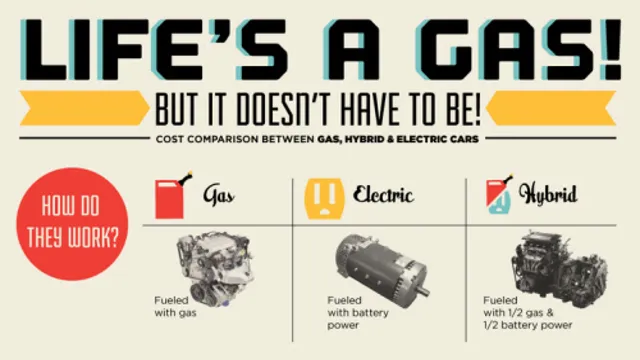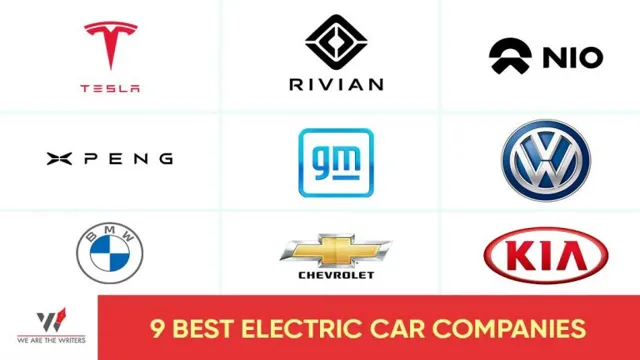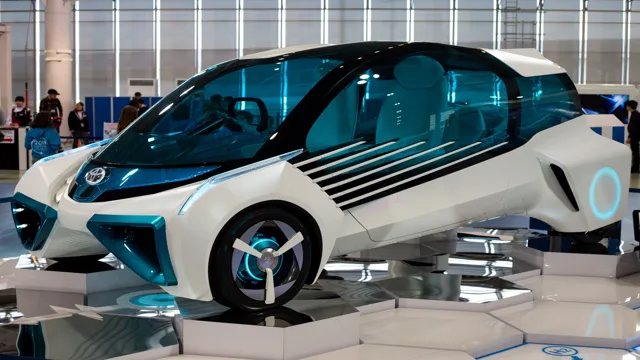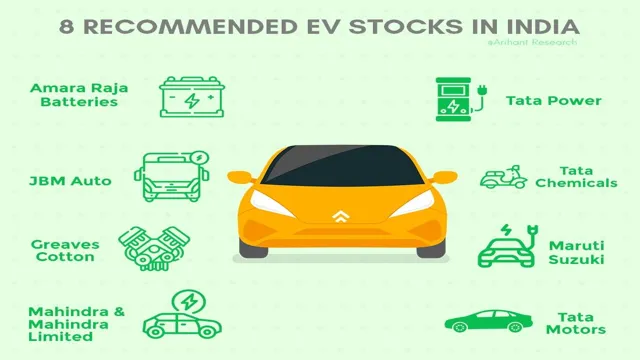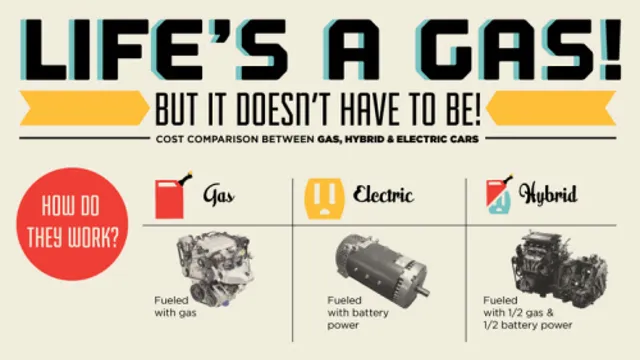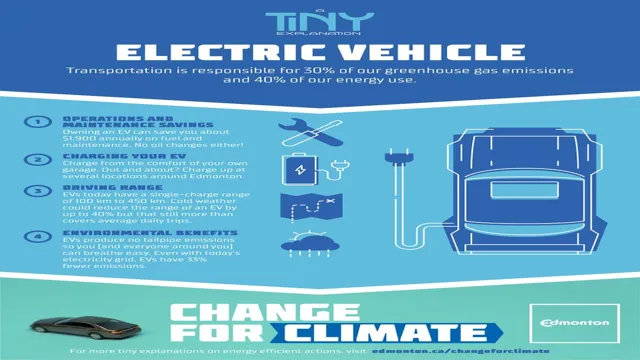Eco-Friendly & Budget-Friendly: The Cost-Benefit Analysis of Electric Cars
Electric vehicles (EVs) have become more common on roads around the world in recent years. In addition to reducing greenhouse gas emissions, they are also becoming a popular choice for many people due to the potential financial savings. But what is the cost benefit of electric cars? Are they really cheaper to operate than gas-powered vehicles? And what factors should you consider when weighing the pros and cons of switching to an electric car? In this blog post, we’ll explore the answers to these questions and provide a comprehensive guide to understanding the cost benefit of electric cars.
So buckle up and let’s get started!
Initial Cost vs Long-Term Savings
When it comes to electric cars, the initial cost may be a bit higher than a traditional gasoline-powered vehicle, but the long-term savings more than make up for it. With an electric car, you’re able to save money on gas, oil changes, and other maintenance costs. Additionally, the federal government offers a tax credit of up to $7,500 for electric car purchases, which can help offset the upfront cost.
Over the life of the vehicle, it’s estimated that electric cars can save drivers thousands of dollars in fuel costs alone. Plus, with more and more charging stations popping up all over the country, range anxiety is becoming less of a concern. In the end, the cost benefit of electric cars is clear – the initial investment may be higher, but the long-term savings make it a smart financial decision.
Purchase price vs fuel and maintenance savings over time
When it comes to purchasing a vehicle, the initial cost can be a major consideration for many people. However, it’s important to also factor in the potential long-term savings from fuel efficiency and maintenance costs. While a car with a lower purchase price may seem like the most cost-effective option upfront, a more expensive vehicle with better gas mileage and fewer repair needs could save you more money in the long run.
It’s like the difference between buying a cheaper pair of shoes that fall apart after a few months versus investing in a high-quality pair that lasts for years. Ultimately, the decision depends on your budget and priorities, but it’s worth considering the potential long-term savings when weighing your options.
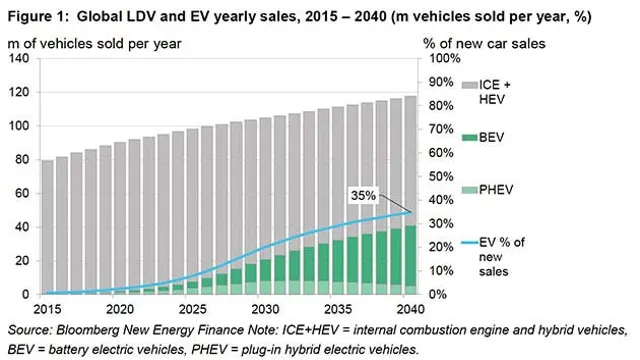
Case studies of electric car owners saving money
Electric car ownership has been on the rise in recent years, with many individuals looking to reduce their environmental impact and save money in the long run. While electric cars may come with a higher initial cost compared to gas-powered vehicles, numerous case studies have shown the potential for significant long-term savings. The key is to focus on the lifetime cost of ownership rather than just the upfront expense.
Many electric car owners have reported saving hundreds, even thousands of dollars on fuel costs alone. Additionally, maintenance expenses are usually lower since electric cars require fewer oil changes and other upkeep tasks. Furthermore, certain tax credits and incentives are available for electric car owners, further increasing their savings potential.
While still relatively new, electric cars continue to become a more cost-effective and sustainable transportation option for individuals and families.
Government Incentives and Tax Credits
The cost benefit of electric cars is further strengthened by government incentives and tax credits. Many countries have introduced policies that support electric mobility by offering financial incentives to buyers, such as rebates and subsidies, to help offset the typically higher upfront cost of an electric vehicle. In the United States, for example, the federal government provides a tax credit of up to $7,500 for EVs, which can make a big dent in the cost of a more expensive EV model.
Additionally, many states offer their own incentives, such as reduced registration fees or HOV lane access. This not only makes electric cars more affordable, but also encourages people to embrace clean transportation. The availability and amount of incentives and tax credits may vary depending on your location, income level, and other factors.
However, it’s worth looking into these programs as they can significantly reduce the cost of electric car ownership in the long run.
Overview of federal, state, and local incentives for electric car owners
Electric car ownership has become increasingly popular due to its environmental benefits, and governments offer various incentives and tax credits to encourage this trend. The federal government offers a tax credit of up to $7,500 for electric car purchases, which depends on the car’s battery size and manufacturer. Some states also provide their incentives such as tax breaks, rebates, and HOV lane access.
For instance, California offers a $2,000 rebate for electric cars, while Colorado provides up to $5,000. Additionally, local governments may grant perks like free parking and charging station access. The benefits often exist to offset the higher initial cost of buying an electric vehicle and encourage a transition to cleaner energy while also supporting the local economies.
If you are researching electric car ownership, it is worth checking for available incentives in your area to see the savings difference.
Real-life examples of incentives and tax credits reducing the cost of electric cars
When it comes to purchasing electric cars, government incentives and tax credits can significantly reduce the cost for consumers. For example, in the United States, the federal government offers a tax credit of up to $7,500 for the purchase of an electric vehicle. Some states also offer their own incentives, such as additional tax credits, rebates, or access to carpool lanes.
In California, for instance, electric car buyers can receive a rebate of up to $2,500. These incentives not only make electric cars more affordable for consumers, but they also help to promote the adoption of environmentally-friendly vehicles. As the demand for electric cars continues to grow, it is likely that more governments around the world will offer incentives to encourage their use.
So, if you’re considering purchasing an electric car, it’s worth researching the incentives and tax credits available in your area to help make an informed decision.
Environmental Benefits
One of the biggest advantages of electric cars is the environmental benefits that they offer. Compared to traditional gas-powered vehicles, electric cars emit significantly less greenhouse gases and other pollutants. In fact, electric cars can reduce carbon emissions by up to 60% over the lifetime of the vehicle, which can have a major impact on air quality and public health.
Furthermore, electric cars can also play a role in reducing our reliance on oil and other nonrenewable resources, which can have a positive effect on the environment as well as national security. While there is no doubt that electric cars can be more expensive than their gas-powered counterparts upfront, the cost-benefit of electric cars over time could make them a more cost-effective and sustainable option in the long run.
Impact of electric cars on air quality and climate change
Environmental Benefits One of the biggest environmental benefits of electric cars is their impact on air quality. As they run on electricity, they do not emit harmful pollutants like carbon monoxide, nitrogen oxide, and particulate matter. This means that electric cars can significantly reduce the amount of air pollution that contributes to respiratory problems, heart disease, and other health issues.
Additionally, electric cars are much quieter than traditional gas-powered vehicles, which reduces noise pollution in urban areas. In terms of climate change, electric cars emit far fewer greenhouse gases than conventional cars. This means that by transitioning to electric vehicles, we have the potential to significantly reduce our carbon footprint and mitigate the impacts of climate change.
Overall, electric cars offer a more environmentally-friendly alternative to conventional vehicles, and their widespread adoption could play a significant role in improving the health of our planet and our own well-being.
Comparison of emissions from electric cars vs traditional gas-powered cars
Electric cars are a great way to reduce our carbon footprint and protect the environment. They emit significantly fewer greenhouse gases compared to traditional gas-powered cars. While gas-powered cars emit CO2 and other harmful pollutants, electric vehicles produce zero emissions.
This not only preserves the air we breathe but also helps improve the overall quality of our environment. Imagine if all cars on the road were electric, how much cleaner the air would be! Plus, electric cars are powered by renewable energy sources, such as wind or solar power. This means we don’t have to rely on the fossil fuels that are rapidly depleting and causing irreparable damage to the earth.
Switching to electric cars is an essential step in mitigating the effects of climate change and reducing our carbon footprint. It’s time we take action and help protect our planet for future generations.
Conclusion
In conclusion, the cost benefit of electric cars can be summarized as follows: while the upfront cost may be higher, the long-term savings on fuel and maintenance make it a smart investment. Not only that, but the environmental benefits of reduced emissions and a cleaner atmosphere cannot be ignored. So, if you want to save money and save the planet, an electric car is the way to go! Plus, you’ll look pretty cool driving one.
“
Summary of cost and environmental benefits of electric cars
One of the most significant environmental benefits of electric cars is that they emit zero tailpipe emissions. This means that they do not contribute to air pollution, which is a major environmental concern, especially in urban areas. Additionally, electric cars can help to reduce greenhouse gas emissions that contribute to climate change.
While electricity production is not always clean, electric cars are still more environmentally friendly than traditional gas-powered cars. Furthermore, electric cars can also help to reduce noise pollution as they run more quietly than their gas-powered counterparts. The growing use of electric cars will have a significant impact on the environment and will help to create a more sustainable future.
By switching to electric cars, we can make a significant contribution to reducing the negative impact of transportation on the environment.
FAQs
What are the cost benefits of owning an electric car?
Electric cars offer lower fuel and maintenance costs compared to traditional gas-powered cars. They also qualify for tax incentives and rebates, making them more affordable in the long run.
Are electric cars more expensive to purchase than gas-powered cars?
In most cases, yes, electric cars tend to be more expensive upfront than traditional gas-powered cars. However, the cost benefits of owning an electric car, such as lower fuel and maintenance costs, can offset the higher initial price.
How do electric cars compare in terms of the total cost of ownership?
Despite being more expensive upfront, electric cars have a lower total cost of ownership due to their lower fuel and maintenance costs. This means that over time, electric cars could potentially save you money compared to a traditional gas-powered car.
Are there any additional costs that come with owning an electric car?
While electric cars have lower fuel and maintenance costs, they may require you to install a charging station at home, which can be an added expense. Additionally, some states may charge additional fees for owning an electric car.

